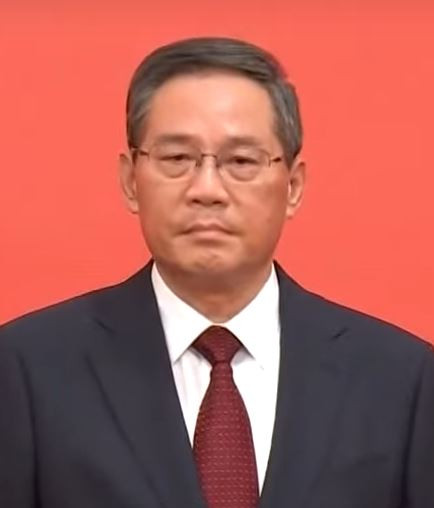Li Qiang, the former Communist Party chief of Shanghai, has assumed the role of China's premier, the country's second-highest position, with the challenging task of reviving an economy battered by three years of COVID-19 restrictions. Widely regarded as pragmatic and business-friendly, the 63-year-old Li will need to stabilize China's uneven recovery in the face of global headwinds, weak consumer and private-sector confidence, and rising tensions with the West over issues such as the U.S. moves to block China's access to key technologies.
Li replaces Li Keqiang, who has retired after two five-year terms, during which his role was gradually diminished as President Xi Jinping tightened his grip on power.
Li Qiang, who has never served in the central government before, may face a steep learning curve in his initial months in the job. However, analysts noted that his close ties with President Xi, who was the provincial party secretary of Zhejiang province when Li was his chief of staff from 2004 to 2007, will empower him to get things done.
President Xi is installing a group of loyalists in key positions in the biggest government reshuffle in a decade, as a generation of more reform-minded officials retires, and he consolidates power after being unanimously elected president for an unprecedented third term. Li received 2,936 votes, with three votes against and eight abstentions, according to totals projected on a screen inside the Great Hall of the People in central Beijing.
Li's primary responsibility this year will be to exceed the modest 2023 growth target of around 5%, the lowest in nearly three decades, without triggering serious inflation or piling on debt. While China has not signaled plans to unleash stimulus to jumpstart growth, potential setbacks such as a collapse in exports or persistent weakness in the property sector could force Li's hand.
China's post-pandemic recovery has been uneven, with February inflation surprisingly soft, and Beijing's successful private firms such as Alibaba have faced abrupt crackdowns and regulatory hurdles in recent years, eroding confidence in the private sector. Meanwhile, global businesses are wary, and the American Chamber of Commerce in China reported that a majority of responding companies no longer see China as a "top three investment priority."
China is attempting to present a business-friendly image. On Friday, Xinhua reported that an official from China's state planning agency had met with a vice president from U.S. chip giant Qualcomm, conveying that China would provide a good business environment for multinationals.






